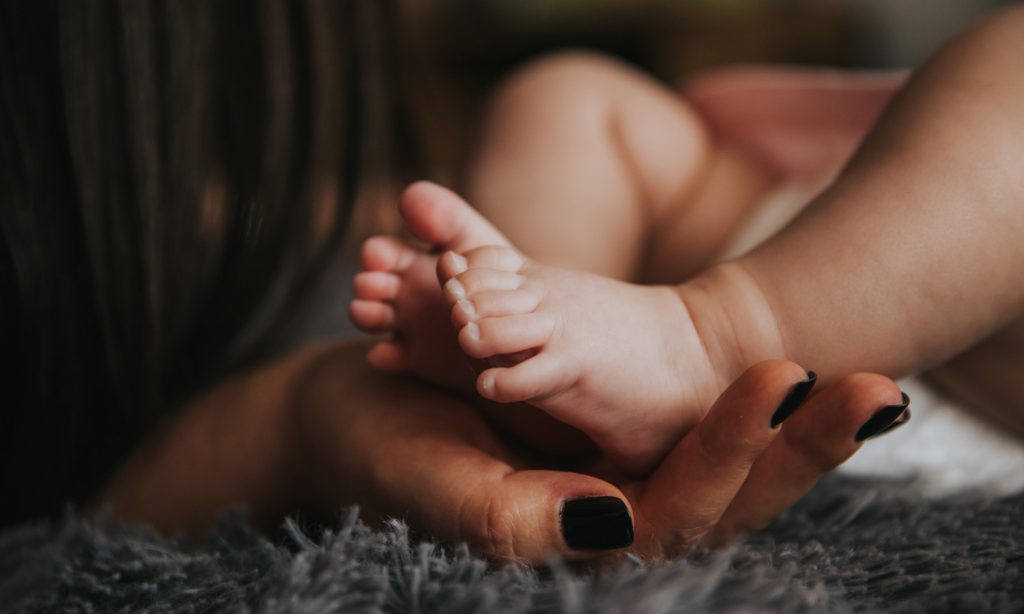
Does Prenatal Cannabis Use Make Babies Angry? Debunking the latest medical study
This article originally appeared on Cannabis.net and was republished with permission.
There I was, minding my own business when I read the headline, “Cannabis Use During Pregnancy Can Make A More Anxious, Aggressive Child”. So claims the title of an article in the New York Times by Melinda Wenner Moyer, who cites a study looking at maternal cannabis use and an allegedly suppressed gene network in the placenta.
The article is well written and has many links embedded in the text that create the illusion of authority. However, if you read almost two-thirds of the way down you will come across this paragraph:
Photo by Cengiz Via Unsplash
“However, the study does not prove that prenatal cannabis use caused the children’s behavior problems. Some of the mothers reported using cannabis after giving birth (although THC can pass through breast milk). And women who use cannabis may differ in other ways from abstinent women who put their children at risk for behavioral problems. They may have underlying risk factors, such as a family history of psychiatric problems, or they may have been exposed to other chemicals during pregnancy that increase the risk of behavioral problems in their children, said Ryan Bogdan, a psychologist at Washington University in St. Louis, who said the explores underlying biology of psychiatric disorders. The study’s authors tried to use statistical methods to control such differences, but some of them may have influenced the results. ”
This is not to say that there may be biological concerns about cannabis use, it certainly needs to be clinically investigated. However, as with many studies in which there are damning views about cannabis, the study cited was not clinical in nature. In addition, the phrase “Some of the mothers said they did not use cannabis until after they were born” makes the article’s claim more dubious.
Nonetheless, I decided to look at the information to see if it was true or not whether smoking weed during pregnancy can create angry and anxious babies.
About the author
I think before we dive into the story we need to take a closer look at Melinda Wenner Moyer. Moyer is the author of the book “How to Raise Children Who Aren’t Assholes”. The book claims to follow science-based approaches to raising your children, but after reading some of the negative reviews on their book, there seems to be a strong ideological bias.
RELATED: Cannabis use during pregnancy has been linked to these childhood problems
Their concept of the “asshole” is based on a certain mindset prevalent in mainstream media, which is perfectly fine. Of course, if you fell out of your framed view of how life should be, you would likely end up on their “asshole list” and later on, your babies could be just as good.
One of the negative reviews on her book said the following;
“I’m a huge fan of evidence-based education, like Emily Oster’s books, so I wanted to try this out. However, it felt like another book written by a parent who saw their way and introduced some studies to try to justify it. It was NOT research based. I like books where the author discusses research that has changed their approach. Rather, this is research used to justify the approach the author has already believed in. It just feels biased and a little weak. There are so many better parenting books out there that offer more radical discoveries and insights. “
Another negative criticism was: “The first 5 minutes of the book author stages are racist. That is clear CRT indoctrination. “
Again, you’d likely be considered an asshole if you didn’t join the Critical Race Theory in the eyes of the author. Or the fact that “anti-racist” requires you to be a racist first to be against it, at least psychologically. Framing matters! Any neuroscientist or behavioral psychologist will tell you that, but I digress.
 Photo by Alex Pasarelu via Unsplash
Photo by Alex Pasarelu via Unsplash
Why is it important to understand who the author is? This is important because when the author uses studies to justify a position she already believes in, the objectivity of the science is called into question. Given that her narrative is based on the premise of “don’t raise asshole kids” and uses “evidence” to justify this position, this article seems more like a well-done form of domestic promotion to niche authority “Parents who don’t raise assholes”.
Main problems with studying
We have already pointed out that the study in question does not prove that prenatal cannabis use had an impact on children’s behavior. We also found that these were non-clinical studies and that some mothers smoked cannabis after the fact.
There were also environmental problems. For example, how many of these “troubled tots” had an absent father? According to Fatherhood.org, the absence of a father can lead to serious behavior problems and quadruple your chances of slipping into poverty. You’re also more likely to go to jail if you don’t have a father.
RELATED: Study Finds Link Between Depression and Marijuana Use During Pregnancy
This is just one factor that can have a huge impact on your behavior problems. The fact is that studies on prenatal cannabis use are lacking. Most of these studies are conducted through surveys and interpreted based on the responses, however the vast majority of these tests have not been replicated.
 Photo by Bruno Nascimento via Unsplash
Photo by Bruno Nascimento via Unsplash
Hence, it is empirically not scientific to draw any conclusions about the behavioral effects of your children from prenatal cannabis use. It essentially completely reduces humans to biology, which is definitely less of an impact. However, how you were raised, whether you have money or not, your parent’s relationship, micro and macro experiences all play a role in how you conduct yourself.
RELATED: Should New Mothers Stop Using Cannabis?
Social norms are not determined by biology. Behavior is much more a consequence of parental action or inaction at critical points of development than the types of foods you eat. The thing about THC is that it is a phytocannabinoid that is almost identical to anandamide found in breast milk.
The fact that your endocannabinoid system is interacting with the chemical suggests that the impact on our biology is minimal. Of course, we need clinical data to see if that’s true or not, but until then, studies like the one published in the NY Times should be critically analyzed and sources studied too.
I’m sure Moyer believes everything she writes and amassing additional evidence of her position – and that’s fine. Because whatever you’re looking for, you’ll find it.

Post a comment: